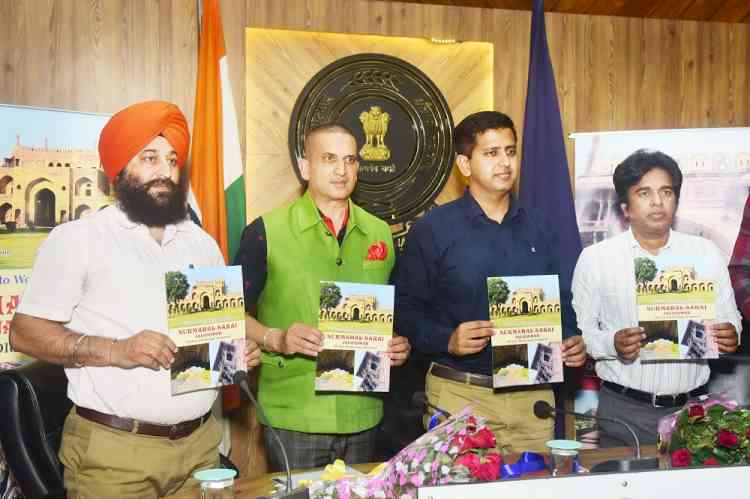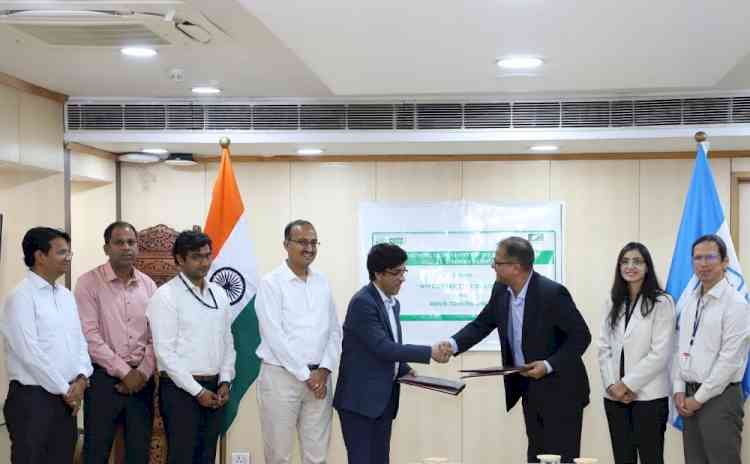PAU Experts Visit Various Villages Of Punjab To Manage Whitefly Incidence
Author(s): City Air NewsLudhiana, July 1, 2016: Dr Baldev Singh Dhillon, Vice-Chancellor, Punjab Agricultural University (PAU) and Head of the Monitoring Committee (on whitfely) is leaving no stone unturned in checking whitefly spread...

Ludhiana, July 1, 2016: Dr Baldev Singh Dhillon, Vice-Chancellor, Punjab Agricultural University (PAU) and Head of the Monitoring Committee (on whitfely) is leaving no stone unturned in checking whitefly spread and bringing relief to the farmers. In view of last year’s damage to whitefly crop, the cotton belt’s Krishi Vigyan Kendras, Farm Advisory Service Centres, and Cotton Research Centres; and scientists of Haryana and Rajasthan Agricultural Universities are collectively working to curb whitefly menace this year. In this campaign, Agriculture Development Officers, Agriculture Officers, District Agriculture Officers, 500 scouts and 50 field supervisors are regularly conducting surveillance for whitefly.
As a step towards controlling whitefly, Dr Dhillon has called upon the experts from State Agriculture Department, Punjab Agricultural University and students of PAU to visit cotton fields. Scientists as well as students have been equipped with appropriate knowledge in this direction. The scientists of the Departments of Agronomy, Entomology, Plant Pathology, Plant Breeding and Genetics, Farm Machinery and Power Engineering, etc. visited several villages of Punjab to observe cotton fields and also interacted with the farmers. As per the report gathered from these experts, it has been noticed that cotton sown near moong, cucurbits and okra crops was more affected by the attack of whitefly. Dr Dhillon is taking full stock of the visits of the heads and scientists of the University to various villages of the state.
The experts visited Maisar khana, Kot fatha, Jhunir, Thai, Bagha, Kuthiwal kala, Naruana, Mahiraj, Bear Behman, Siweaa, Deon, Mahima sarja, Gillpati, Goniana villages of Bathinda district. Similarly, they visited Kundal, Khuiya sarwar, Sardarpura dhani, Miharna, Beghawali, Khalu, Dangar khera, Rurhi wali mandi, Jandwala, Nukran and Jhotiyanwali villages of Fazilka district to check whitefly. In Khuian sarwar block, whitefly was seen in big number. In addition, experts visited Tamkot, Kotli, Gulabewala, Chak Bear, Shaik and Mahabhadar villages of Muktsar district. The teams of scientists also visited Atla, Mauje, Joga, Bhupalkalan, Fuluwala, Dogra villages in Mansa’s Jhunir block. Apart from this, experts paid a visit to Chajla, Maujowal, Kokharkala, Gobindgarh, Jijiya, Changalegara, Khandewal and Wanjara villages of district Sangrur. Dr B.S. Dhillon, PAU VC; Dr R.S. Sidhu, Director of Extension Education; and Dr R.K. Gumber, Director of Research are also conducting surveillance for whitefly in different villages of Punjab.
Dr Dhillon said that various control measures are being taken in collaboration with the Department of Agriculture to check whitefly. He advised the farmers to keep monitoring this cotton fields and in case more than 18 adults are noticed on three fully formed leaves in upper canopy of the plant before10.00 a.m., then contact PAU experts. Since whitefly can migrate from one field to another, it is best to use pesticides at the village level.
The Director of Extension Education said that farmers are being educated in this regard through print (newspapers, farm publications, pamphlets) and electronic media (TV/radio), as well as social media. As many as 3 lakh pamphlets have been distributed across the villages of Punjab. Through this, farmers have been informed about whitefly’s symptoms, and use of pesticides and spray pumps for its management. Besides, a calendar and a poster have been prepared for proper use of pesticides. These have been supplied to the dealers free of cost so that use of recommended pesticides could be made only. The University hopes that they would be able to manage whitefly incidence collectively.

 cityairnews
cityairnews 
















